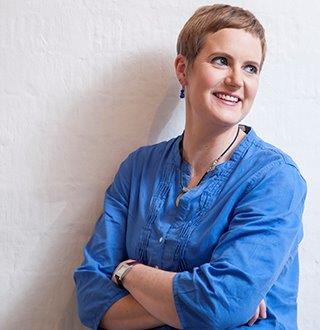Latest News Archive
Please select Category, Year, and then Month to display items
06 April 2018
Photo Rulanzen Martin
 From the left: Dr Thulisile Mphambukeli, leader of the BRICS research team that is exploring the political economy of water and food security, and her research partner, Dr Victor Okorie.
From the left: Dr Thulisile Mphambukeli, leader of the BRICS research team that is exploring the political economy of water and food security, and her research partner, Dr Victor Okorie.
A Brazil, Russia, India, China and South Africa (BRICS) delegation is to hold the 10th Annual BRICS Summit in the last week of May 2018 in Johannesburg. Dr Thulisile Mphambukeli, leader of the University of the Free State (UFS) research team alongside Dr Victor Okorie from the Department of Urban and Regional Planning, in collaboration with Prof Lere Amusan of North-West University, will ensure that water and food security is a prominent feature on the gathering’s agenda.
First, the project titled: “Exploring the political economy of water and food security nexus in BRICS and Africa” will debut at the National Institute for the Humanities and Social Sciences BRICS Think Tank Forum”.
According to Dr Mphambukeli, the key to water security is attitudinal change by means of education and conscientisation. This, she is adamant about, holds the potential to drive behavioural adjustments in the way society interacts with water.
Genetic and social approaches
Dr Okorie asserts that if strides towards reducing the demand for water were to be made, research efforts should be geared towards effecting changes at DNA level. Meaning we need to explore waterwise ways that enable crops and animals to thrive optimally.
The project also looks at social dimensions of water such as flushing a toilet. “Research activities on redesigning toilets, especially the urinal, where more than nine litres of water are used to flush less than one cubic centimetre of urine, are timely in the context of managing water and the food nexus crises,” said Dr Okorie.
Combining the genetic and social approaches would allow us to produce more with a smaller water footprint. This can be made possible by implementing precision agriculture which is about estimating and applying exact quantities of water and nutrients needed for the production of crops or the raising of livestock.
Paradigm shifting policies
Prof Amusan said the team intended to propose functional solutions that take the quality of water into consideration. Equitable production and distribution of water depends on endorsing policies of co-production between citizens, governments and the public sector. BRICS member states mutually consider water and food security as an issue of paramount significance, hence its feature on this prestigious summit’s agenda.
#Women'sMonth: PSP provides scholarly support system for Prof Wilson-Strydom
2017-08-17

Prof Merridy Wilson-Strydom loves asking questions and
therefore has a strong focus on research.
She also enjoys supervising PhD students.
Photo: Sonia Small
Publishing her first book and receiving a rating from the National Research Foundation (NRF) are career highlights for Prof Merridy Wilson-Strydom. As an emerging scholar, the Prestige Scholars Programme (PSP) of the University of the Free State (UFS) played an important role in reaching these goals.
According to the Associate Professor in the Centre for Research on Higher Education and Development, the PSP provided an important scholarly support system, both through the coordinators and the other researchers who are part of the programme.
Writing retreats made book possible
“I found the support and advice provided during the process of applying for funding and rating really helpful,” she says about receiving a NRF C2 rating, based on her work over the past eight years.
She compliments the PSP writing retreats, which “provided a wonderful space for writing and it was during the writing retreats that I did a lot of the writing for my book that was published by Routledge in 2015.” Her book, University Access and Success: Capabilities, Diversity and Social Justice, moving back into academia from institutional research, working closely with undergraduate students as research participants, and postgraduate supervision, are all highlights of her work.
Her book makes a valuable contribution to higher education literature related to access and transition to universities. But, contrary to the mainstream approaches to access which rely on school performance and admissions tests, she poses the issue of social justice at the centre of the analysis.
Student project produces E-book
Another project headed by her and funded by the NRF Thuthuka Programme, was a study to understand the lives of 40 undergraduate students (on the UFS Bloemfontein Campus) who attended township high schools. The study had a particular focus on identifying institutional practices that either enable or constrain students’ capabilities for success in undergraduate study.
One of the outputs was the writing of an E-book called In our own words: Perspectives on being a student. It was written by 30 undergraduate students and the purpose was to provide a platform for students to tell their own stories about life as a student.